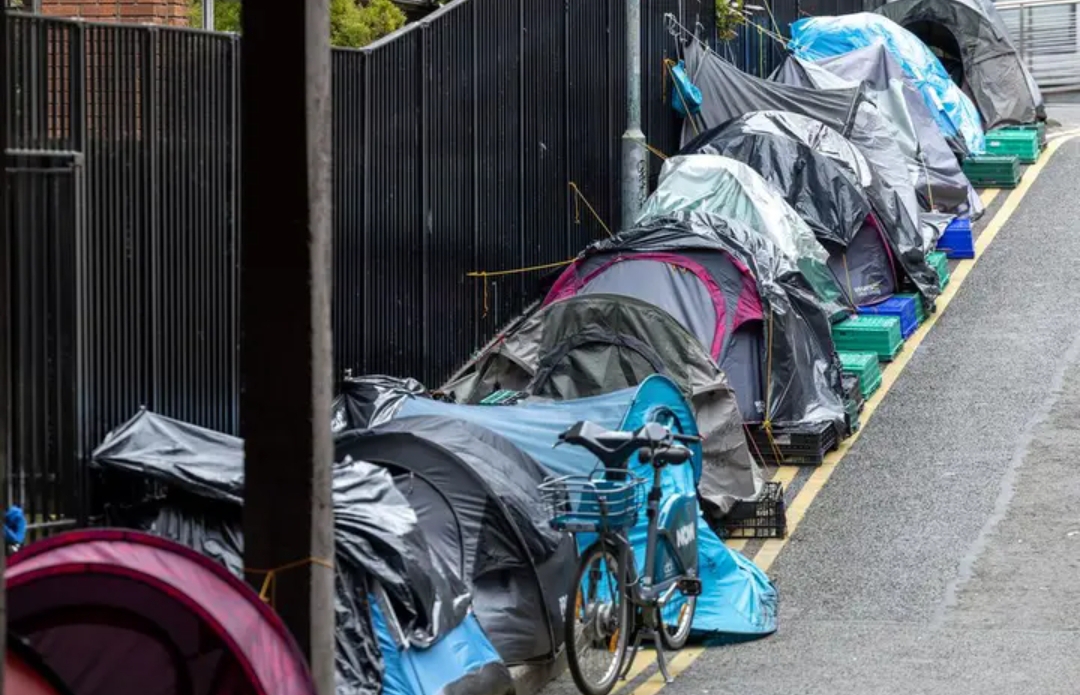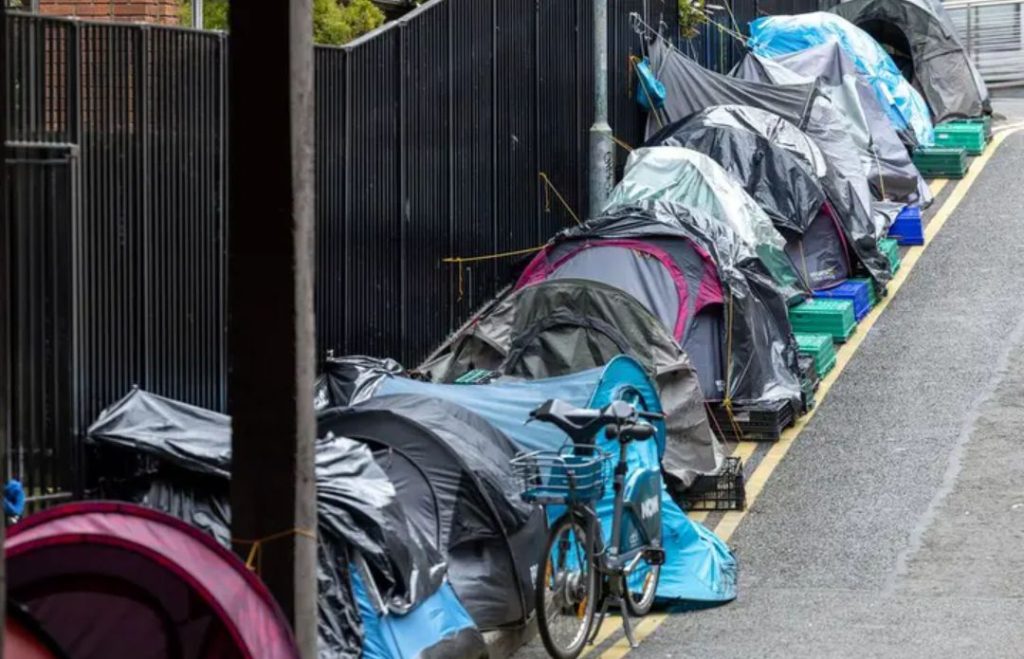
In the heart of Dublin, a growing crisis unfolds as asylum seekers find themselves without shelter, facing not only the harsh winter elements but also the constant threat to their lives. More than 750 individuals seeking refuge in Ireland are now grappling with homelessness after the government declared a shortage of accommodation for asylum seekers in early December 2023, as reported by BBC News.
Abdul, a 33-year-old man, and his wife Evelyn, 22, opened up about their harrowing experience to BBC News on Friday, February 2, 2024. They recounted a terrifying incident where they were confronted with a knife-wielding group just two weeks ago.

“About two weeks ago, before we came to this area, we were threatened with a knife, and that’s why we left that place. So it is dangerous,” Evelyn revealed. “They were kids, maybe 14, maybe 15. They said we had five minutes to leave because they come back and stab us.”
This alarming incident sheds light on the grim reality faced by asylum seekers living on the streets of Dublin. The Department of Integration acknowledged the severity of the situation, stating, “Despite intensive efforts to source emergency accommodation, the department is currently not in a position to provide accommodation to all international protection applicants due to the severe shortage.”
The dire circumstances extend beyond adults, encompassing men, women, and children who are left vulnerable to the harsh realities of street life. The numbers paint a stark picture – 13,000 asylum applications were recorded in Ireland in 2023, a staggering fivefold increase from 2019.
Ireland, currently home to more than 101,585 people between those fleeing Ukraine and International Protection (IP) applicants, faces a monumental challenge in addressing the pressing needs of this vulnerable population. Among them, over 74,955 Ukrainian individuals seek accommodation and protection from the State, separate from those who have arrived seeking asylum from other countries.
It is essential to distinguish between those fleeing Ukraine and those seeking asylum from other nations. The unique circumstances faced by Ukrainians, who are processed and housed differently, contribute to the complexity of Ireland’s response to the influx of displaced individuals.
The global context surrounding asylum seekers underscores the need for swift and comprehensive action to address the shortage of accommodations and ensure the safety of those seeking refuge in Ireland. The government, NGOs, and the international community must collaborate to provide immediate solutions and support to those living on Dublin’s streets, fostering an environment where fear and threats no longer define the lives of asylum seekers




